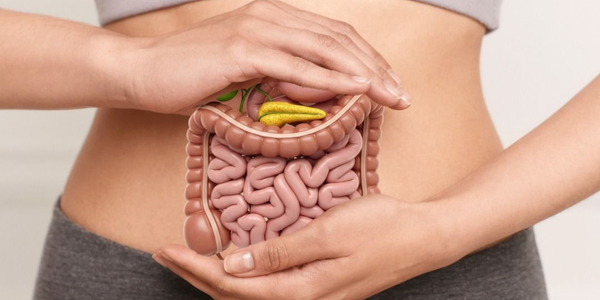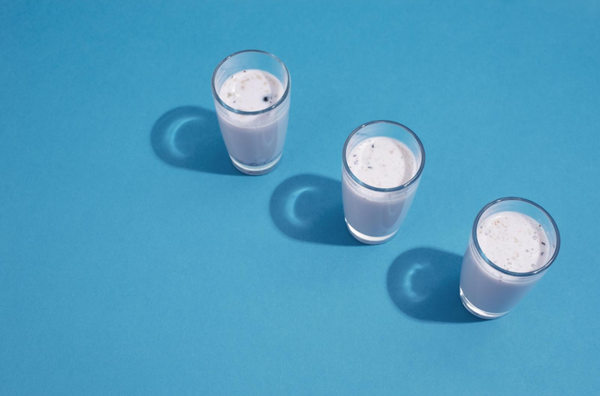How Probiotics Can Help with Yeast Infection
The human gut isn't the only place in the body with a beneficial bacterium. The vagina also has a microbiome that benefits it in certain ways. A yeast or vaginal infection occurs when there's an overgrowth of a yeast called candida due to a disruption in the balance of bacteria. That's how it all starts At least 75% of women worldwide are likely to be diagnosed with yeast or vaginal infections at least once in their lives. It is that common. But how does it take place?
Several experts recommend probiotics for yeast infections. This blog talks about the causes and symptoms of yeast infection and if probiotics are beneficial for treating it.
What is a Yeast Infection?
A healthy vagina consists of some yeast cells and good bacteria, like lactobacillus. But sometimes, there can be an imbalance in the lactobacillus bacteria and yeast cells, leading to vaginal infections or yeast infections that are scientifically termed candidiasis.
Symptoms of Vaginal yeast infection :
- Burning
- Itching
- White discharge
- Redness
- Swelling
- Pain when urinating
If this issue isn't treated on time, it can lead to serious complications. There are several prescribed and over-the-counter medications that can help you get rid of the infection. However, several studies suggest that probiotics can also be of help in treating yeast infections.
What Are the Causes of a Yeast Infection?
The fungus Candida Albicans is majorly responsible for most vaginal yeast infections. As said, it happens due to your vaginal bacteria getting out of balance. It can happen due to a lot of reasons:
-
Taking Antibiotics –
Antibiotics are great for treating infection, but these antibiotics decrease the amount of Lactobacillus (the good bacteria) in the vagina. And when the balance of the good bacteria shifts, yeast infection occurs.
-
Uncontrolled Diabetes –
If your diabetes is not in control, it increases the blood sugar level leading to an overgrowth of yeast in the vaginal area.
-
Pregnancy and Hormones –
Yeast infections in the vagina are fairly common during pregnancy. That happens because hormonal changes in the body can change the pH level and the balance of candida in your vagina.
-
Weak Immune System –
You can have recurring yeast infections if you have a weakened immune system. Several treatments and medications for diseases like HIV, AIDS, cancer, etc. can suppress your immune system.
Typical treatment options for yeast infections in the vagina include antifungal medication that lasts up to three to seven days. Another effective treatment option that is in talks these days is probiotics.
Probiotics for Treatment of Yeast Infection
Probiotics are a collection of live microorganisms living inside your body. These microorganisms have plenty of health benefits. Lactobacillus is one of the most common probiotics present in the vaginal microbiota that plays a crucial role in preventing the overgrowth of candida in the vagina. These are the main probiotics to prevent yeast infection. Some lactobacillus strains are: -
- Lactobacillus acidophilus
- Lactobacillus rhamnosus
- Lactobacillus crispatus
- Lactobacillus gasseri
- Lactobacillus jensenni
Do Probiotics Really Work?
There have been several studies that prove probiotics to be much more effective than experts originally thought. Women have been using yogurt to treat vaginal or yeast infections. There are a few studies about the same, and some of them prove that yogurt does help in dealing with yeast infections and has results similar to antifungal medications. But the studies are conducted with a fairly smaller focus group. However, none of them proves antibiotics to be bad or have associated risks.
So, if you think that antifungal medications are not working for you, you might want to try probiotics.
How To Try Probiotics for Yeast Infections?
There are different probiotic treatments you can go for: -
-
Oral Probiotics –
Probiotic + Prebiotic supplement that might help balance the pH balance in the vagina, keep the microbiota in check, and prevent recurring infections.
-
Suppositories –
These are solid medications that have to be inserted inside the vagina using a special applicator. It is a quicker method of treating your infection by suppressing the growth of infectious bacteria and nourishing the growth of healthy vaginal bacteria. It targets the site of infection thereby reducing inflammation, irritation, itching, and redness.
Pro Tip: No matter what probiotic treatment you choose to get rid of the yeast infection, check the list of ingredients (bacteria in specific).
Wrapping Up
Various factor can promote the growth of yeast infection. Antibiotics are often considered a primary treatment option whenever suffering from yeast infection. Probiotics are not helpful to no only help maintain a healthy gut microbiome but also balance the vaginal microbiome. Probiotics can be a great alternative for treating yeast infection.
It is best to consult with your doctor in case of severe and recurrent infections.
References
Superti F, De Seta F. Warding Off Recurrent Yeast and Bacterial Vaginal Infections: Lactoferrin and Lactobacilli. Microorganisms. 2020 Jan 17;8(1):130. doi: 10.3390/microorganisms8010130. PMID: 31963487; PMCID: PMC7023241. https://www.ncbi.nlm.nih.gov/pmc/articles/PMC7023241/
Abdelhamid AG, El-Masry SS, El-Dougdoug NK. Probiotic Lactobacillus and Bifidobacterium strains possess safety characteristics, antiviral activities and host adherence factors revealed by genome mining. EPMA J. 2019 Sep 5;10(4):337-350. doi: 10.1007/s13167-019-00184-z. PMID: 31832110; PMCID: PMC6883010. https://www.ncbi.nlm.nih.gov/pmc/articles/PMC6883010/
Hu H, Merenstein DJ, Wang C, Hamilton PR, Blackmon ML, Chen H, Calderone RA, Li D. Impact of eating probiotic yogurt on colonization by Candida species of the oral and vaginal mucosa in HIV-infected and HIV-uninfected women. Mycopathologia. 2013 Oct;176(3-4):175-81. doi: 10.1007/s11046-013-9678-4. Epub 2013 Aug 8. PMID: 23925786; PMCID: PMC3903393. https://www.ncbi.nlm.nih.gov/pmc/articles/PMC3903393/
InformedHealth.org [Internet]. Cologne, Germany: Institute for Quality and Efficiency in Health Care (IQWiG); 2006-. Vaginal yeast infection (thrush): Overview. 2019 Jun 19. Available from: https://www.ncbi.nlm.nih.gov/books/NBK543220/
Mohammed L, Jha G, Malasevskaia I, Goud HK, Hassan A. The Interplay Between Sugar and Yeast Infections: Do Diabetics Have a Greater Predisposition to Develop Oral and Vulvovaginal Candidiasis? Cureus. 2021 Feb 18;13(2):e13407. doi: 10.7759/cureus.13407. PMID: 33758703; PMCID: PMC7980094. https://www.ncbi.nlm.nih.gov/pmc/articles/PMC7980094/
Mohammed L, Jha G, Malasevskaia I, Goud HK, Hassan A. The Interplay Between Sugar and Yeast Infections: Do Diabetics Have a Greater Predisposition to Develop Oral and Vulvovaginal Candidiasis? Cureus. 2021 Feb 18;13(2):e13407. doi: 10.7759/cureus.13407. PMID: 33758703; PMCID: PMC7980094. https://www.ncbi.nlm.nih.gov/pmc/articles/PMC7980094/



























 DOWNLOAD NOW
DOWNLOAD NOW

Leave a comment